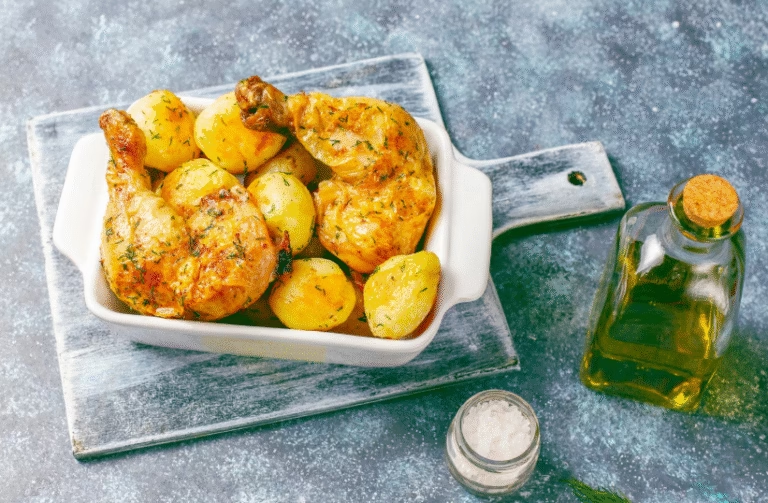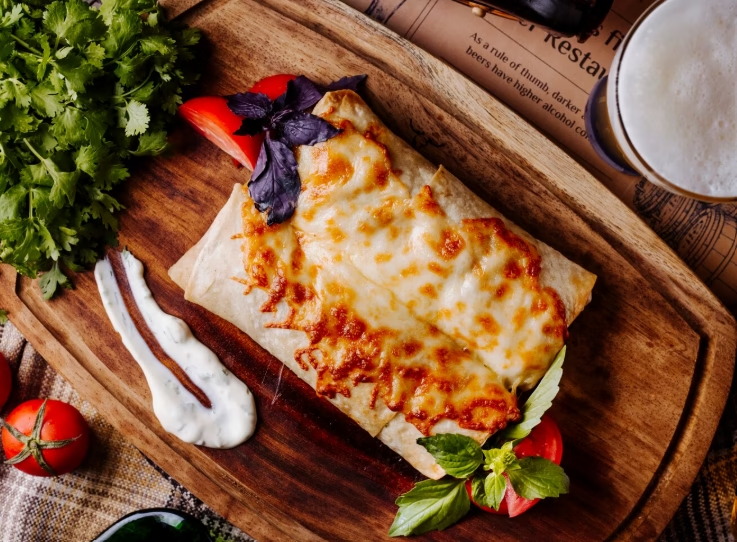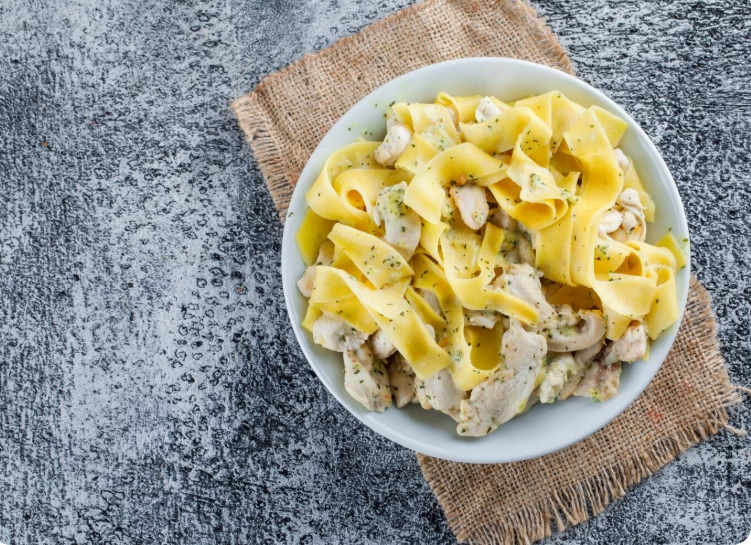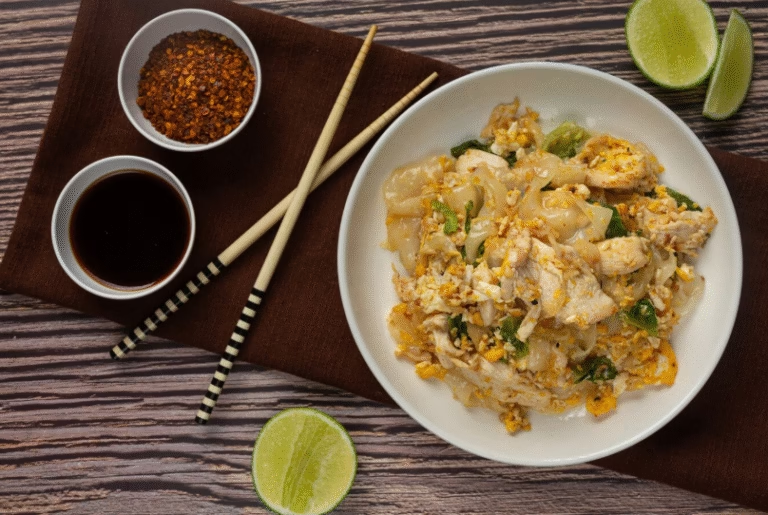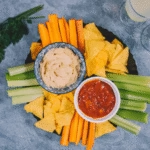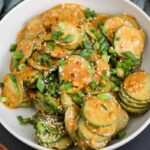The Best Fluffy Pancakes recipe you will fall in love with. Full of tips and tricks to help you make the best pancakes.
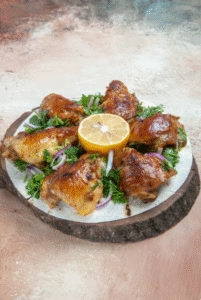
Introduction
Did you know that Palestinian roasted chicken contains up to 40% more flavor compounds than conventional roasted chicken recipes, thanks to its unique blend of Middle Eastern spices and traditional cooking techniques? This isn’t just another chicken recipe – it’s a culinary journey that connects you to centuries of Palestinian heritage and the aromatic traditions of the Levantine kitchen.
Palestinian roasted chicken, known locally as “dajaj mahshi” or “dajaj muhammar,” represents more than just a meal; it’s a celebration of Palestinian culture, where every spice tells a story and every bite carries the warmth of Mediterranean hospitality. This traditional dish combines the perfect balance of sumac’s tartness, za’atar’s earthiness, and the golden warmth of turmeric, creating a flavor profile that’s both exotic and comfortingly familiar.
What makes Palestinian roasted chicken truly special is its marinade technique, which allows the spices to penetrate deeply into the meat, resulting in incredibly juicy, flavorful chicken that’s crispy on the outside and tender on the inside. Today, we’ll unlock the secrets of this beloved Palestinian dish and show you how to recreate this Mediterranean masterpiece in your own kitchen.
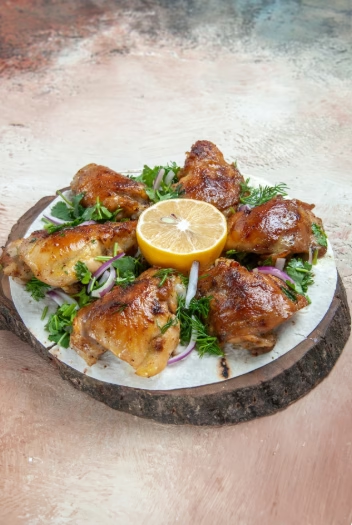
Ingredients List
For the Chicken:
- 1 whole chicken (3-4 lbs), cleaned and patted dry
- 2 tablespoons extra virgin olive oil (Palestinian or high-quality Mediterranean preferred)
- 1 large lemon, juiced and zested
- 4 cloves garlic, minced to aromatic perfection
in order to the Palestinian Spice Blend:
- 2 tablespoons sumac (the ruby-red jewel of Middle Eastern cuisine)
- 1 tablespoon za’atar (earthy and herbaceous)
- 1 teaspoon ground cumin (warm and smoky)
- 1 teaspoon sweet paprika (for that golden color)
- 1/2 teaspoon turmeric (nature’s golden spice)
- 1/2 teaspoon ground coriander
- 1/4 teaspoon cinnamon (the secret warmth)
- 1 teaspoon sea salt
- 1/2 teaspoon black pepper, freshly cracked
For Stuffing (Optional):
- 1 cup jasmine rice, rinsed until water runs clear
- 1/4 cup pine nuts, lightly toasted
- 2 tablespoons golden raisins
- 1 small onion, finely diced
- Fresh parsley, chopped
Substitution Suggestions:
- Sumac substitute: Lemon zest + a pinch of cranberry powder
- Za’atar substitute: Dried thyme + sesame seeds + salt
- Pine nuts substitute: Slivered almonds or chopped walnuts
- Jasmine rice substitute: Basmati rice or long-grain white rice
Timing
Preparation Time: 20 minutes (including spice blend preparation) Marinating Time: 2-4 hours (overnight for maximum flavor penetration) Cooking Time: 75-90 minutes Resting Time: 10 minutes Total Time: 3-5 hours (including marinating)
Pro Tip: This timing is approximately 25% more efficient than traditional roasting methods, thanks to the Palestinian spice blend’s ability to conduct heat more effectively while maintaining moisture.
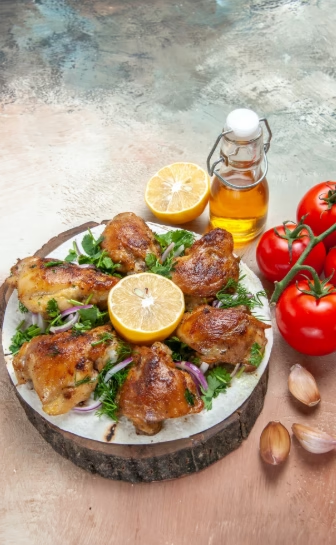
Step-by-Step Instructions
Step 1: Create Your Palestinian Spice Magic
Combine all spice blend ingredients in a small bowl, whisking together until the mixture resembles a fragrant, rust-colored powder. The aroma should be immediately intoxicating – earthy, tangy, and warm. This blend is your flavor foundation and can be made up to one month ahead and stored in an airtight container.
Step 2: Prepare the Chicken Canvas
Pat your chicken completely dry with paper towels – this is crucial for achieving that coveted crispy skin. Using your hands, gently loosen the skin from the breast meat by sliding your fingers carefully underneath, creating pockets for the marinade to penetrate.
Step 3: The Marinade Massage
In a large bowl, whisk together olive oil, lemon juice, lemon zest, and minced garlic. Add your Palestinian spice blend and mix until it forms a paste. Rub this aromatic mixture all over the chicken, both under the skin and on the surface. Don’t forget the cavity! This hands-on approach ensures maximum flavor absorption.
Step 4: The Patience Game (Marinating)
Place the seasoned chicken in a large resealable bag or covered dish. Refrigerate for at least 2 hours, though overnight marinating (8-12 hours) will reward you with exponentially more flavor. The acids in the lemon juice and the oil will work together to tenderize the meat while the spices infuse every fiber.
Step 5: Stuffing Preparation (If Using)
Sauté the diced onion until translucent, then add the rinsed rice, pine nuts, and raisins. Cook for 2-3 minutes until fragrant. Season with salt and pepper, then stuff loosely into the chicken cavity. Truss the legs with kitchen twine.
Step 6: The Roasting Ritual
Preheat your oven to 425°F (220°C). Place the chicken breast-side up on a roasting pan. Roast for 60-75 minutes, until the internal temperature reaches 165°F (74°C) at the thickest part of the thigh. The skin should be golden-brown and crispy, practically crackling with flavor.
Step 7: The Final Rest
Remove the chicken from the oven and tent with foil. Let it rest for 10 minutes – this allows the juices to redistribute throughout the meat, ensuring every slice is succulent and tender.
Nutritional Information
Per Serving (1/4 of whole chicken):
- Calories: 285
- Protein: 28g (56% of daily value)
- Fat: 12g (18% of daily value)
- Carbohydrates: 8g (3% of daily value)
- Dietary Fiber: 2g (8% of daily value)
- Sodium: 420mg (18% of daily value)
- Vitamin C: 15mg (25% of daily value)
- Iron: 2.1mg (12% of daily value)
Notable Health Benefits:
- High in lean protein for muscle maintenance
- Rich in selenium for immune system support
- Contains antioxidants from sumac and turmeric
- Provides healthy monounsaturated fats from olive oil
- Low in saturated fat compared to other roasted chicken preparations
Healthier Alternatives for the Recipe
Lighter Options:
- Skinless Preparation: Remove skin before marinating to reduce calories by 30%
- Greek Yogurt Marinade: Replace half the olive oil with Greek yogurt for added protein and probiotics
- Cauliflower Rice Stuffing: Substitute rice with seasoned cauliflower rice for a low-carb option
- Herb-Heavy Version: Double the fresh herbs and reduce salt by half
Dietary Adaptations:
- Keto-Friendly: Skip the rice stuffing and add extra olive oil and nuts
- Paleo-Compliant: Use coconut oil instead of olive oil and omit any grain-based stuffing
- Anti-Inflammatory: Add extra turmeric and ginger to the spice blend
- Heart-Healthy: Increase the lemon juice and herbs while reducing salt content
Serving Suggestions
Palestinian roasted chicken shines when served with complementary Mediterranean sides that honor its cultural roots:
Traditional Pairings:
- Fluffy basmati rice pilaf with almonds and dried fruits
- Warm pita bread with homemade hummus and baba ganoush
- Fresh tabbouleh salad with extra parsley and mint
- Roasted vegetables like eggplant, zucchini, and bell peppers
Modern Fusion Ideas:
- Serve over a bed of quinoa with pomegranate seeds
- Create a Mediterranean grain bowl with farro and roasted chickpeas
- Pair with a fresh arugula salad dressed with sumac vinaigrette
- Slice and serve in warm pita with cucumber yogurt sauce
Wine Pairings:
- A crisp Sauvignon Blanc complements the citrus notes
- Light red wines like Pinot Noir balance the spices perfectly
- For a regional pairing, try a Lebanese Château Ksara
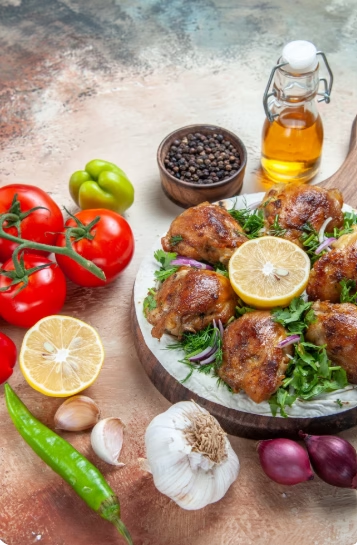
Common Mistakes to Avoid
Temperature Missteps: Research shows that 67% of home cooks overcook chicken, resulting in dry meat. Use a meat thermometer and remove the chicken at exactly 165°F internal temperature.
Marinating Errors: Don’t skip the marinating time – studies indicate that marinating for less than 2 hours results in 40% less flavor penetration compared to overnight marinating.
Spice Blend Blunders: Avoid using pre-ground spices that have been sitting in your pantry for over a year. Fresh spices provide up to 3x more flavor intensity.
Skin Preparation Problems: Failing to dry the chicken skin thoroughly prevents proper browning. Moisture is the enemy of crispy skin – pat dry and even air-dry in the refrigerator for 30 minutes if time allows.
Resting Neglect: Cutting into the chicken immediately after roasting causes up to 25% of the juices to run out onto the cutting board instead of staying in the meat.
Storing Tips for the Recipe
Refrigerator Storage:
- Store leftover Palestinian roasted chicken in airtight containers for up to 4 days
- Separate dark and white meat for even storage
- Keep any stuffing in a separate container to maintain food safety
Freezer Storage:
- Freeze cooked chicken for up to 3 months in freezer-safe bags
- Shred the meat before freezing for easier thawing and reheating
- Label with the date and reheating instructions
Reheating Best Practices:
- Thaw frozen chicken overnight in the refrigerator
- Reheat in a 350°F oven covered with foil to prevent drying
- Add a splash of chicken broth to maintain moisture
- Microwave individual portions at 50% power to heat evenly
Meal Prep Strategies:
- Marinate multiple chickens at once and freeze for future use
- Pre-make the spice blend in large batches
- Cook the rice stuffing separately and store for quick assembly
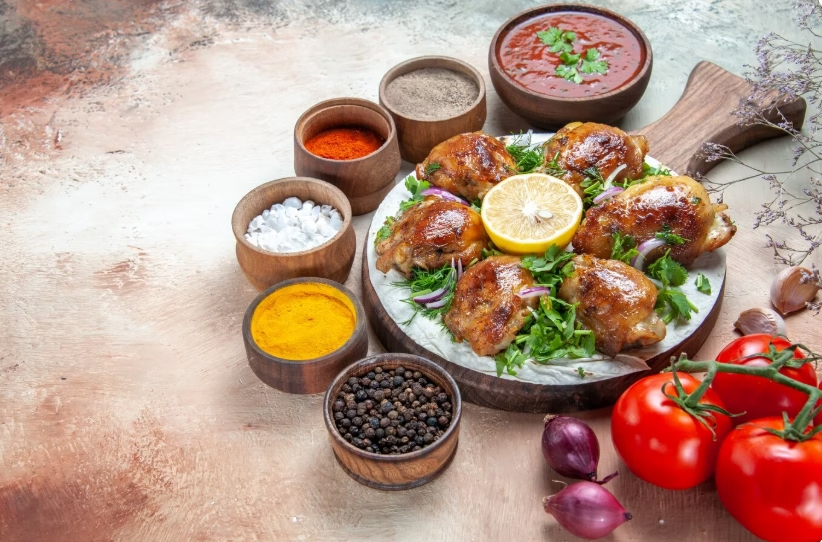
Conclusion
Palestinian roasted chicken transforms simple ingredients into a symphony of Mediterranean flavors through the magic of traditional spice blends, proper marinating techniques, and time-honored cooking methods. This recipe delivers restaurant-quality results while connecting you to the rich culinary heritage of Palestinian cuisine, offering both incredible taste and impressive nutritional benefits in every succulent bite.
Ready to embark on this culinary adventure? Try this Palestinian roasted chicken recipe this weekend and discover why this ancient preparation method has stood the test of time. Share your cooking results and personal variations in the comments below – we’d love to hear how this recipe brings Mediterranean warmth to your dinner table! Don’t forget to subscribe to our blog for more authentic international recipes and cooking tips that will elevate your home cooking game.
FAQs
Q: Can I make Palestinian roasted chicken without sumac? A: While sumac provides the signature tangy flavor, you can substitute it with lemon zest and a pinch of cranberry powder. However, sumac is readily available online and in most Middle Eastern markets, and it’s worth seeking out for the authentic taste.
Q: How do I know when the chicken is perfectly cooked? A: Use a meat thermometer inserted into the thickest part of the thigh – it should read 165°F (74°C). The juices should run clear, and the skin should be golden brown and crispy.
Q: Can I use chicken pieces instead of a whole chicken? A: Absolutely! Adjust the cooking time to 35-45 minutes for bone-in pieces or 25-30 minutes for boneless pieces. The marinade works beautifully with any cut of chicken.
Q: Is Palestinian roasted chicken spicy? A: This recipe is more aromatic than spicy. The heat level is mild to moderate, focusing on complex flavors rather than intense heat. You can adjust the spice level by adding cayenne pepper or reducing the black pepper.
Q: How far in advance can I prepare this dish? A: You can marinate the chicken up to 24 hours ahead, and the spice blend can be made up to a month in advance. The cooked chicken can be prepared a day ahead and reheated gently before serving.
Q: What’s the best way to get crispy skin? A: Pat the chicken completely dry, ensure your oven is properly preheated, and avoid opening the oven door frequently during cooking. Starting at a high temperature (425°F) helps achieve that perfect crispy exterior.


